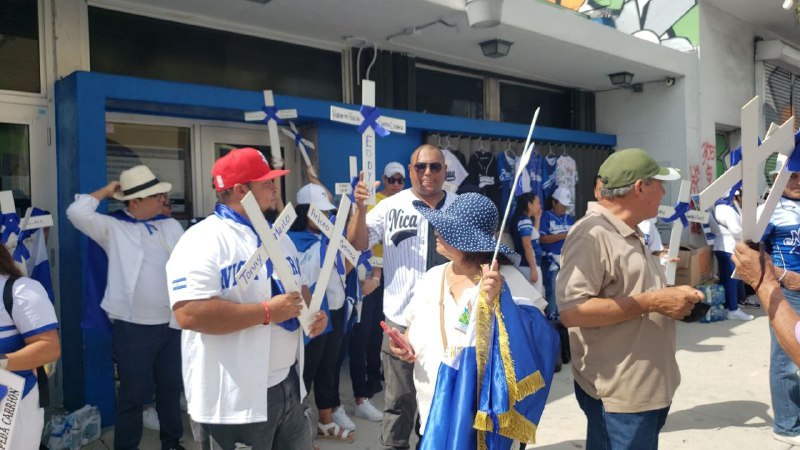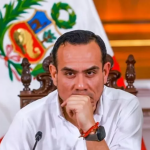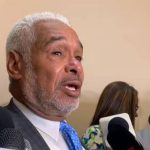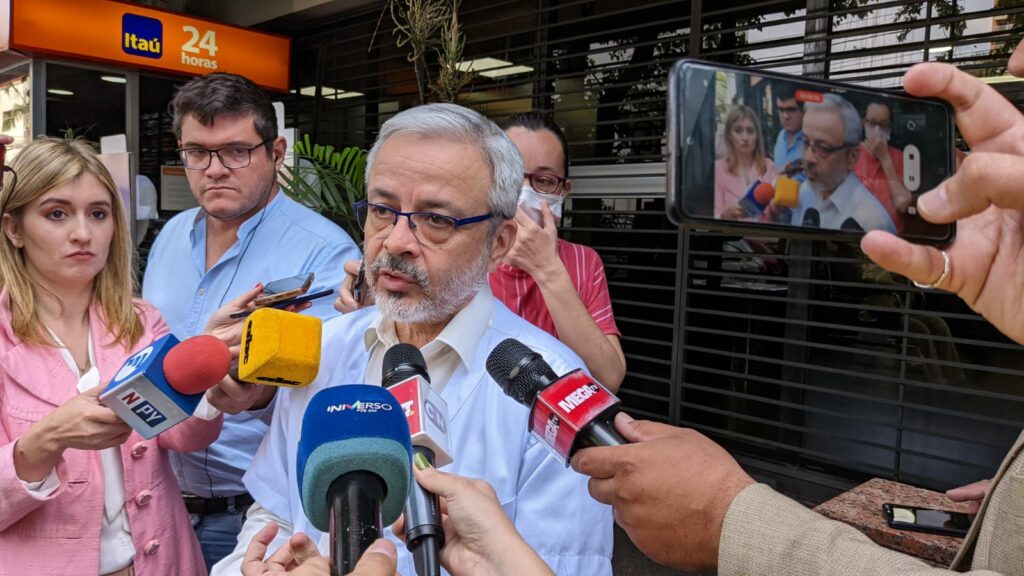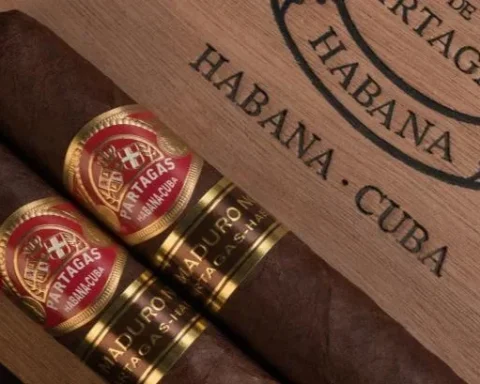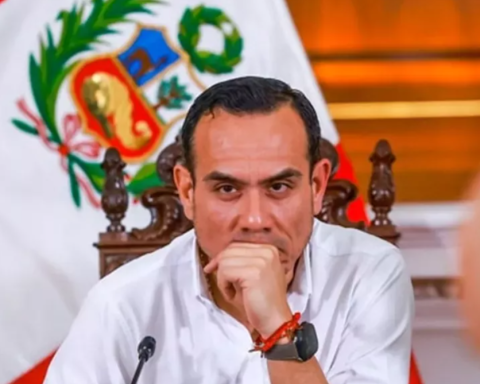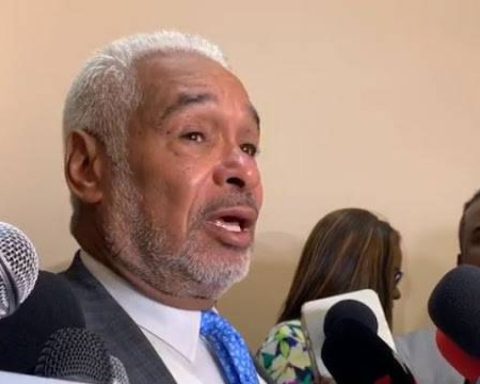Nicaraguans living in Miami, United States, organized yesterday, April 16, a demonstration to commemorate five years of civic struggle, to demand justice and democracy for Nicaragua, and for the freedom of political prisoners who are still languishing in the jails of the dictatorship.
In the so-called “Las Cruces” march, mothers of the victims of April 2018, political prisoners, opposition leaders, activists and human rights defenders participated. The activity was carried out in honor of the victims of the violence of the dictatorship of Daniel Ortega and Rosario Murillo.
The opponents dressed in the blue and white colors of the Nicaraguan flag, and also explained that the mobilization was a show of solidarity with the mothers of April, those women who lost their children during the 2018 protests.
Related news: Nicaraguan exiles march in Miami demanding the release of Monsignor Álvarez
The demonstrators began the route from the Santa Agatha Church in Miami to the Rubén Darío square. They carried photographs of the murdered Nicaraguans, as well as crosses with their names, images of the political prisoners held in the different prison systems of the regime, and flags of Nicaragua and the Catholic Church.
The march, organized by the so-called Tranque de Miami, was attended by former politicians such as Edwin Carcache, Irlanda Jerez and exiled Nicaraguans such as Lesther Alemán, Yubrank Suazo, Félix Maradiaga among other opponents.
Elizabeth Velazquez, mother of Josué Israel Mujica murdered on July 8 during “Operation Cleaning” in Diriamba, Carazo, assured that they continue to demand “justice, mothers do not give up.”
For his part, Yader Vázquez, father of the young Gerald Vázquez, murdered by paramilitaries in the Divina Misericordia church in Managua, explained that “my family is asking for justice.”
In addition, Monsignor Silvio Báez, after the mass he officiated in memory of the April victims, maintained that “the experience since April 2018, we must not forget. Not only because it meant a historical milestone that broke the history of Nicaragua forever, but also because in April 2018 a type of coexistence was created that has to become a model for the future, political colors disappeared there, there were no excluding ideologies, nobody he fought with no one, there we all think of Nicaragua, that’s why I think the spirit of April should remain for the future.”
“Nicaragua will be better and it will be different only if we remain faithful to the spirit that united us all in April 2018,” the Nicaraguan bishop remarked.
This coming April 18 marks the fifth anniversary of the April outbreak. The relatives of those murdered in the social protests continue to demand justice, but rather they are subjected to siege, harassment and threats of imprisonment, which has forced many into exile.
The Ortega y Murillo regime keeps more than 50 Nicaraguans in jail for opposing their dictatorial government. Opponents are subjected to torture, isolation and ill-treatment in the country’s prisons.
